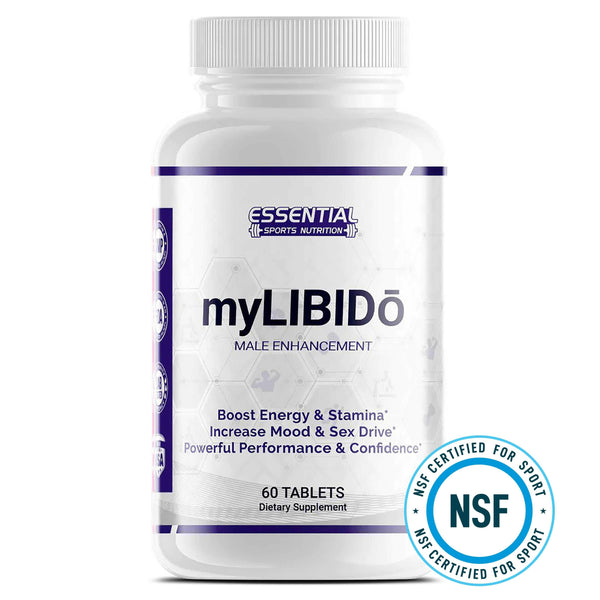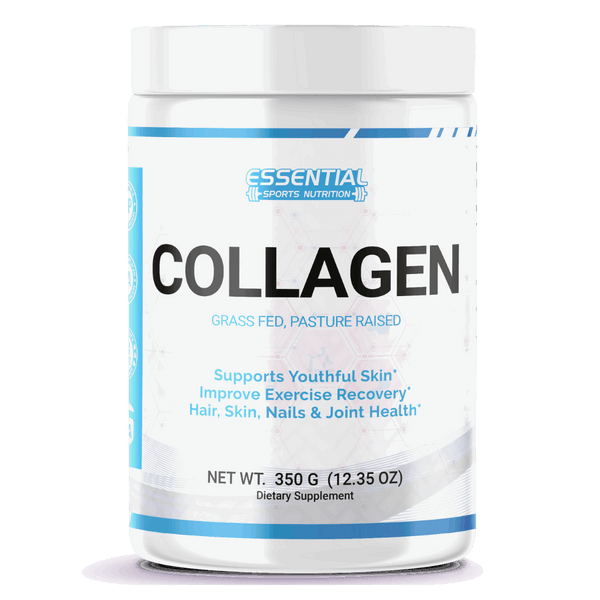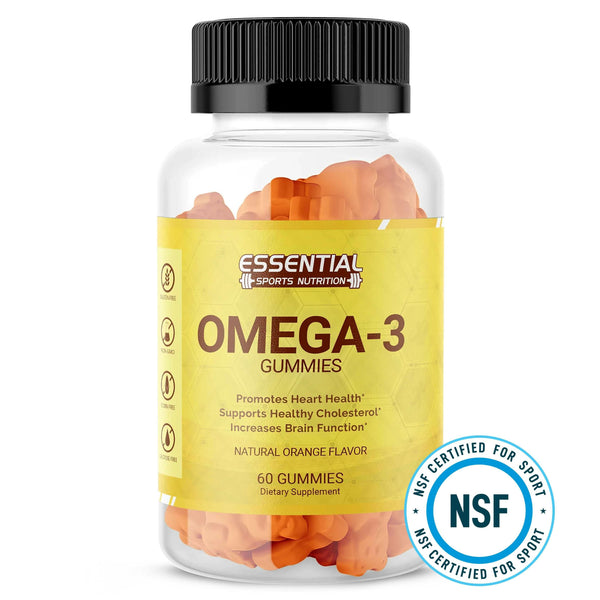Feeling rough after a night out can lead you to seek quick remedies for a hangover. Vitamin B has gained attention for its potential to ease hangover symptoms. When you drink alcohol, it depletes Vitamin B levels in your body. These vitamins are key for keeping your energy up and helping your metabolism. Taking Vitamin B could help restore these vital nutrients and support your liver in breaking down alcohol, which might make your hangover less harsh.
Hydration and rest are still essential for recovery, and Vitamin B isn't a magic solution. It's important to enjoy drinks in moderation to prevent hangovers. Also, before you start taking Vitamin B supplements, talking with a healthcare professional is a smart move to ensure they're a safe choice for you.

Key Takeaways
Hangovers and Vitamin B
When you've had a fun night out, sometimes you might end up with a hangover. It's not the best feeling, right? Well, it turns out that Vitamin B might be a helpful friend during these rough mornings. Studies suggest that B vitamins can play a role in reducing hangover symptoms.
Why Vitamin B Helps
These vitamins are crucial because they help your body break down the alcohol you've consumed. They work to keep things in balance, which can be thrown off after drinking too much. But remember, while they can help, taking in a lot of Vitamin B all at once isn't a good idea. It's all about finding the right amount.
Getting Your B-Vitamins
Eating foods that are rich in B vitamins is a smart move. Think whole grains, meats, beans, and leafy greens. If you're considering supplements, it's essential to talk with a doctor first. They can guide you so that you get what you need without going overboard.
A Word on Drinking
The best way to handle hangovers is to avoid them by drinking in moderation. Know your limits and stick to them. That way, you can still enjoy a good time without the not-so-fun consequences the next day.
Remember, it's all about balance. Take care of your body, and it will take care of you, especially after a night out.
Understanding Vitamin B

To effectively combat hangover symptoms, you'll need to understand how the B-complex vitamins, such as B1, B2, B3, B5, B6, B7, B9, and B12, function in your body's metabolic processes. These vitamins are integral to the functioning of the brain and nervous system. Each type of vitamin B plays a role in converting food into energy, synthesizing neurotransmitters, and repairing cellular damage—all of which can be compromised after alcohol consumption.
B1 (thiamine), for instance, is crucial for the metabolism of carbohydrates and the production of myelin, which insulates nerve cells. B2 (riboflavin) aids in the regeneration of glutathione, one of the body's primary antioxidants. B3 (niacin) is significant for DNA repair and stress responses. B5 (pantothenic acid) is involved in the synthesis of coenzyme A, vital for fatty acid metabolism. B6 (pyridoxine) helps with amino acid metabolism and neurotransmitter production. B7 (biotin) assists in various metabolic pathways, including those that metabolize fats and proteins. B9 (folate) is key for nucleic acid synthesis, and B12 (cobalamin) is necessary for nerve tissue health and blood cell production.
As water-soluble vitamins, the B complex isn't stored in large amounts in the body, making regular intake essential. These vitamins' role in the functioning of metabolic pathways suggests their potential to mitigate the adverse effects of alcohol, such as hangover symptoms.
Alcohol and B-vitamin depletion

Drinking a lot of alcohol can quickly use up the B vitamins in your body. This can make hangover symptoms worse. Alcohol makes you lose more nutrients when you pee because it's a diuretic. Drinking can cause a big drop in B vitamins.
B-12, for example, is important for nerves and making blood. It's mostly in meat. Not having enough B-12 can mess up how your body works. This can cause problems with blood flow and change brain chemicals that affect how you feel and your drive to do things.
Alcohol and Nutrient Absorption
Alcohol also makes it harder for your body to take in these important vitamins. Even if you eat foods with a lot of B vitamins, alcohol can stop you from getting their benefits. B-6 helps your body turn food into energy, but alcohol can reduce how well B-6 works.
If you take supplements with B-1 and B-6, it can help make hangovers less bad. Also, getting B12 through an IV can make sure your body uses it right away. This can help with dehydration and headaches from hangovers.
B-vitamin supplements and IV Therapy
Taking extra B vitamins can help when you drink too much. B-1 and B-6 supplements can ease hangover problems. IV therapy with B12 is also a good choice. It works fast to fix dehydration and headaches that come with hangovers.
Research on B vitamins and Hangovers
Did you know that B vitamins are key in breaking down alcohol in your body? This process can affect how bad your hangover feels. Research shows that taking B-1 and B-6 vitamins might make your hangover less severe. People who've tried these vitamins say they help. But we need more scientific studies to be sure of these effects.
Understanding Hangovers and B-Vitamins
B vitamins are important because they help our bodies get energy from our food. When we drink alcohol, our bodies use these vitamins to process the alcohol. If you don't have enough B vitamins, breaking down alcohol can be harder. This might make your hangover worse.
Taking B-Vitamin Supplements
Some people take B vitamin supplements after drinking to try to prevent a bad hangover. The idea is that these vitamins can help your body deal with alcohol more efficiently. While personal stories suggest this works, scientists are still studying this to give us clear answers.
The Science Behind B-Vitamins and Hangovers
Scientists are doing experiments to understand this better. They're looking at how B vitamins affect the body after drinking. These studies are important because they can tell us if taking extra B vitamins can help with hangovers.
B-Vitamins Metabolism Role
B vitamins are key players in metabolism, crucial for transforming food into energy. They're essential when it comes to alcohol metabolism. These vitamins, especially B6 and B12, help break down alcohol and reduce its toxic effects on the liver.
This process can ease some hangover symptoms. Eating foods rich in B vitamins, such as whole grains, may help your body recover after drinking alcohol. While B vitamins don't cure hangovers completely, they support your metabolism in reducing discomfort.
Remember to talk to a healthcare professional before starting any new supplement.
Hangover Severity Reduction
During your search for hangover remedies, you may find that recent studies highlight the potential of B vitamins in reducing the severity of hangover symptoms. Vitamin B, particularly B-1 and B-6, has been shown to help reduce the effects of alcohol on your body. When you're drinking alcohol, these vitamins may aid in breaking down the substance more efficiently, diminishing the production of harmful toxins in the liver.
-
Less Nausea: B vitamins can help soothe your upset stomach.
-
Boosted Energy: Replenish what alcohol depletes and combat fatigue.
-
Sharper Mind: Reduce that foggy-headed feeling the morning after.
-
Quicker Recovery: Support your liver's efforts to detoxify.
-
Enhanced Hydration: Help restore lost electrolytes to fend off headaches.
Clinical Trials Evidence
Recent research suggests that B vitamins could help with hangover symptoms. Studies have focused on how vitamins B-1 and B-6 affect people with hangovers from drinking alcohol. Taking supplements that include these vitamins has been linked to less severe headaches and nausea. Pyritinol, which comes from vitamin B-6, shows promise in making hangovers less intense. B vitamins might help by replacing nutrients lost when you drink a lot of alcohol, aiding your body to recover. But remember, it's important to watch out for side effects and talk to a doctor before taking high doses of B vitamin supplements to treat hangovers. We need more studies to know just how well they work.
Consulting Healthcare Professionals
Before you start taking large amounts of vitamin B supplements to fight off a hangover, it's smart to get advice from a healthcare expert. They can guide you on safe use and help you understand any risks. This step makes sure you're looking after your health while seeking relief from hangover symptoms.
Boost Your Well-being with B-vitamin-rich Foods

Whole grains, eggs, dairy, and leafy greens are packed with B vitamins, crucial for easing hangover discomfort. These nutrients are vital for your body's metabolism, especially when alcohol has diminished your nutrient levels. Foods rich in B vitamins are key in helping your liver cleanse itself and aid your digestive system in absorbing nutrients effectively.
Incorporating B vitamins into your diet is more than just beneficial; it's essential. The nutrients from these foods can make a real difference in how you feel after a night out. To help your body bounce back, include B vitamins in your meals, especially if you plan on drinking. It's better to get these vitamins from foods rather than just supplements. Adults should aim to meet the daily recommended amounts for each B vitamin.
Here's a list of foods that are great for a B-vitamin boost:
-
Whole grains: A solid base for nourishment.
-
Eggs: Perfect for renewal and recovery.
-
Dairy products: They bring a sense of comfort.
-
Leafy greens: Packed with life and energy.
-
Legumes: A simple but strong source of health.
Including these in your diet supports your body's natural healing processes and keeps you feeling your best.
Taking Vitamin B After Drinking

Adding a vitamin B complex to your routine after enjoying drinks can help ease hangover symptoms. Why is this important? Vitamin B is key in preventing the nasty effects that come with a hangover. When you drink responsibly and take the right amount of Vitamin B, you can reduce the impact alcohol has on your system.
Talk to Your Doctor First
It's smart to talk to a healthcare professional before starting any supplements. They can guide you on how much Vitamin B is right for you. Usually, you might hear that 400 milligrams per day of vitamin B complex is a good amount to help with hangover symptoms. But remember, these supplements are just there to help you bounce back—they're not an excuse to overdo it with alcohol.
The Role of Vitamin B
Here's a quick look at why Vitamin B matters when you're dealing with a hangover:
-
Thiamin (B1): Boosts energy, cuts down on tiredness
-
Riboflavin (B2): Keeps cells working, and helps you bounce back
-
Niacin (B3): Aids digestion, makes nausea less likely
-
Pyridoxine (B6): Helps make brain chemicals, can lift your spirits
-
Cobalamin (B12): Makes red blood cells, and fights off that weak feeling
The Right Balance
Vitamin B helps replace what alcohol sweeps away, making your recovery smoother. Always stick to the right amount, steer clear of taking too much, and drink with care.
B12 and Hangover Recovery

When you've had a bit too much fun the night before, reaching for vitamin B12 might help you feel better faster. Vitamin B12 is crucial for your metabolism, which means it helps your body break down the alcohol you've drunk. It works to speed up how quickly alcohol is processed, cutting down on the harmful substances your liver has to deal with. This can make your hangover easier to handle.
Why B12 Matters for Hangover Relief:
-
B12 helps break down alcohol, potentially easing hangover symptoms.
-
Recharging your B12 might replace essential nutrients, aiding recovery.
-
It could lessen alcohol's negative effects, promoting health.
-
Consider B12 as a tool in your hangover recovery plan.
-
Studies highlight B vitamins as key for a quicker bounce back after drinking.
Keep in mind, that B12 won't work miracles. It's important to drink in moderation. If you're thinking of using supplements for hangovers, it's a good idea to talk to a doctor first.
Is Vitamin B Good for Hangovers FAQs:
Q: What is the connection between vitamin B and hangovers?
A: Vitamin B is considered good for hangovers as it can help replenish the nutrients depleted by excessive alcohol consumption.
Q: Can a vitamin B deficiency cause hangovers?
A: Yes, a deficiency in vitamin B can contribute to symptoms of a hangover, as it is involved in the body's energy production and detoxification processes.
Q: Which specific B vitamins help prevent hangovers?
A: B complex vitamins, including B1 (thiamine), B6 (pyridoxine), and B12 (cobalamin), are known for their potential to alleviate hangover symptoms.
Q: How does vitamin B help in alleviating hangover symptoms?
A: Vitamin B helps by supporting the body's metabolism, enhancing energy levels, and promoting the recovery of cells damaged by alcohol consumption.
Q: Can vitamin B supplements be taken alongside alcohol to prevent hangovers?
A: While vitamin B supplements are believed to support the body during alcohol consumption, they are not a guarantee against hangovers, and moderation in alcohol intake is always recommended.
Q: Are electrolyte supplements beneficial for hangover prevention?
A: Yes, electrolyte supplements containing minerals such as potassium and sodium can aid in replenishing the body's electrolyte balance, which is often disrupted by excessive alcohol consumption.
Q: What are the best sources of vitamin B for combating hangovers?
A: Foods rich in vitamin B include lean meats, fish, eggs, dairy products, whole grains, and leafy green vegetables. Additionally, B complex supplements are available for those seeking a concentrated source of these vitamins.
Q: Can vitamin B help prevent the negative effects of alcohol?
A: Vitamin B may support the body's ability to process alcohol and mitigate some of its detrimental effects, but it is not a substitute for responsible drinking habits.
Q: How can a balanced diet help prevent hangovers?
A: A balanced diet that includes sufficient amounts of vitamin B and other essential nutrients can support the body's overall resilience and ability to recover from the impact of alcohol consumption.
Q: Is it advisable to consume alcohol to utilize vitamin B for preventing hangovers?
A: While some types of B vitamins may help the body process alcohol, it is crucial to prioritize health and moderation in alcohol intake rather than relying solely on vitamins for hangover prevention.
Other Frequently Asked Questions:
Does Taking B Vitamins Help With Hangovers?
You're wondering if popping B vitamins could ease that pounding headache after a wild night out.
Here's the deal: evidence points to B vitamins helping your body clear alcohol more effectively, potentially lessening hangover woes. Taking a B-complex supplement might be your ticket to feeling better.
Specifically, B-1, B-6, and B-12 are your allies in fighting those nasty post-drink symptoms. So yes, they can help.
Does B-Complex Help With Alcohol?
You've heard 'an ounce of prevention is worth a pound of cure,' right?
Well, taking B-complex may help your body process alcohol more effectively. Research supports its role in metabolism and maintaining proper enzyme function, which is crucial during alcohol consumption.
While specific hangover relief isn't the context here, it's worth noting that a B-complex supplement could support your body's natural responses to alcohol's effects.
Always consider the recommended dosage and consult healthcare professionals.
Does B3 Help Hangover?
You're likely curious if B3, also known as niacin, can alleviate hangover symptoms. While some B vitamins aid in alcohol metabolism, there's limited evidence specifically for B3's effect on hangovers.
It's essential to approach this cautiously and not exceed recommended doses, as high levels of niacin can be harmful.
How Does Thiamine Help Hangovers?
Thiamine, also known as vitamin B1, is a key player in minimizing hangover discomfort. When you drink alcohol, thiamine helps break it down, which means fewer nasty toxins in your body.
It also helps keep your electrolytes balanced, which is super important because losing too many can lead to dehydration, a big reason why hangovers feel so bad.
But remember, drinking less is the best way to avoid a hangover, and no vitamin can truly cure one. If you're thinking about taking thiamine supplements, especially in larger amounts, it's a smart move to talk with your healthcare provider to avoid unwanted side effects.
Conclusion
In the symphony of night revelries, imagine each B-vitamin as a musician, orchestrating your body's harmony against the discord of hangovers. Research charts the score, showing these nutrients help soothe the morning's cacophony.
But, like a maestro's caution, heed the balance—too much can tip the scales toward harm. Embrace foods rich in B vitamins, consider supplements judiciously, and always consult your health conductor before adding new instruments to your wellness ensemble.
Drink responsibly; let moderation be your encore.























